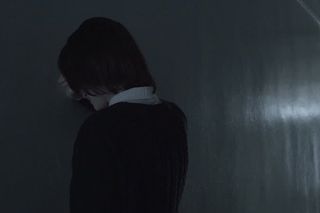
The Effects of Spousal Abuse Can Linger Long After the Violence Stops
For women who have been through it, escape isn’t the end of the story.

S.’s abuse started soon after marriage. At first, the marketing professional, who is in her early 30s and prefers to be identified by an initial, noticed only emotional manipulation – broken promises, controlling requests. She’d agreed to get married on the condition that neither her husband nor his family raise concerns over her sending money to her parents.
“When we met, my husband’s family was very empathetic — they told me it was my duty to send money to my parents,” says S. Then, “the day I got promoted at work, he asked me to give all my earnings to him.”
Soon, the emotional abuse had turned physical. She was beaten, sometimes even burnt by cigarette butts.
“It was when my father spotted bruises on my arm that they agreed that they’d been torturing me,” she says.
Today, her divorce is underway and the case is registered with the police.
It’s a story that’s all too common: Every third woman in India experiences some kind of physical violence at home; according to data by the National Family Health Survey 20015-16, in 31% of those cases, it is at the hands of their husbands, a form of domestic abuse known as intimate partner violence (IPV). And too often, the story of combating domestic abuse ends there – with a successful escape.
But for women who live it, the effects of spousal abuse last long after the violence stops. According to a recent study, the effect of intimate partner violence are, “profound and painfully enduring.”
“Once a victim leaves an abusive relationship we have to begin addressing the issues that stem from having been in that relationship,” says study author Noelle St. Vil, an assistant professor in the University of Buffalo’s School of Social Work. “You can carry the scars from IPV for a long time and those scars can create barriers to forming new relationships.”
Yet few resources exist to help survivors move beyond the betrayal of abusive relationships in order to begin new, healthy relationships.
For S., her experience has left her emotionally drained and physically weak.
“It’s been a year of living separately, but I still get nightmares, I feel low in confidence and feel like I have body-image issues. Sometimes I may start sweating profusely and I can never think of dating or being with any man again,” she says. She adds that she tends to question what lies beneath happy marriages now. “Whenever I see a couple, my immediate thoughts are — this marriage will end, too.”
S. is not unusual. When women come seeking help at Akshara, a Mumbai-based NGO that aids women who have experienced intimate partner violence, they are often not open to the idea of a new relationship, says Snehal Velkar, a programme coordinator. (While it is possible for anyone, of any gender, to experience abuse from a partner of any gender, abused partners are overwhelmingly female.)
“It’s like they have an emotional wall — not ready to talk, are ready for physical relationships, but not emotionally,” says Velkar.
Dr Fabian Almeida, consultant psychiatrist with Fortis Hospital, says is related to self-esteem, which is undermined by abuse from an intimate partner.
“In the very beginning [of recovery from intimate partner violence], it could also result in a drop in confidence,” he says. Self-doubt and nihilism can creep, then, through questions like ‘Why would anyone love me again?’ ‘Why get into new relationships?’ he adds.
Depression, emotional stress, disturbed sleep, or even psychosomatic ailments such as headaches, irritable bowels, a drop in blood pressure or sugar levels, can also follow, according to Dr Sameer Malhotra, director of the department of mental health and behavioral science at Max Hospital. “There’s no time limit on how long they would last — from a few days to a few months, it varies from case to case,” he adds.
For many women, recovery from intimate partner violence is complicated by a feeling of complicity, of having chosen to remain, for however short or long, in the abusive relationship. In a country in which marriage is sacred, and male dominance accepted, the decision to leave an abusive partner is not easily taken; more than 50% of women in India believe husbands are entitled to beat their wives. Only 14% of Indian women who experience spousal violence seek help to stop it.
“Most abused women are not passive victims — they stay in it for their children. Sometimes, there are also reasons such as the fear of retaliation, of alternate means of economic support, stigma or fear of losing custody of children associated with divorce, and for many of them, it’s love and the hope that their partner will change,” says Madhu Bhushan, an independent activist, who has previously worked with Vimochana, a Bengaluru-based women’s group.
Ironically, divorce might well be part of the process of healthy recover from intimate partner violence – or at least seeking legal recourse. Doing so “may give you a sense of accomplishment and you may stop blaming yourself for things you’ve never done,” says Bhushan. Even before any step to legally dissolve a marriage, filing restraining orders and asking for police protection can be as important for mental recovery it is for physical safety. “Most women don’t seek police intervention thinking it’s a private affair, but that shouldn’t be the case,” Bhushan says.
Regardless of whether it’s through legal channels, personal agency and action is critical in recovering from the trauma of intimate partner violence.
“Utilize your time constructively, think of ways to become financially independent, distract yourself with walks, pursuing a hobby, joining support groups,” suggests Dr Malhotra, as ways to escape the cycle of self-doubt abuse can precipitate. “And don’t forget to seek therapy for your children if they’ve witnessed violence.”
And just like getting the support of legal and protection professionals can aid in recovery, so can getting help from a mental health professional.
“Don’t ignore the first signs [of depression following abuse]. If the intensity of any of these symptoms is increasing, you need to ask for help,” says Dr Almeida.
If you are experiencing abuse in your home, you can find help here.
Anubhuti Matta is an associate editor with The Swaddle. When not at work, she's busy pursuing kathak, reading books on and by women in the Middle East or making dresses out of Indian prints.
Related


Thank You Notes Exist for a Reason: They Make People Feel Good
